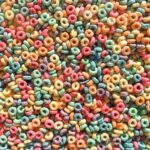Nicotinamide riboside chloride (NRC) is a synthetic form of vitamin B3 found in trace amounts in some foods naturally, including meat, milk, and some vegetables. NRC may also be taken as a supplement and has been studied extensively in humans.
In 2019, NRC was assessed by the EFSA (European Food Safety Authority) in the context of a novel food application and subsequently authorized as a novel food for use in food supplements at a maximum daily amount of 300 mg. Because the initial authorization of nicotinamide riboside chloride as a novel food as set forth in Implementing Regulation (EU) 2020/16 addressed only food supplements, a request was made to extend its use as a novel food to cover nutritional purposes also.
The EFSA was asked to assess this extension and evaluate the safety and bioavailability of the substance when added to relevant foods in the context of Regulation (EC) 1925/2006. EFSA adopted a scientific opinion on the extension of use of NRC as a novel food, concluding that its use in foods as a source of niacin is safe under certain conditions specified in the authorization of the substance by Commission Implementing Regulation (EU) 2022/1160. According to Article 3(1) of Regulation (EC) No 1925/2006, only vitamins and minerals listed in Annex I, in the specified form, can be added to foods.
Based on the EFSA opinion and the authorization as a novel food, nicotinamide riboside chloride will now be included in Annex II to Regulation (EC) 1925/2006 as a form of niacin. Therefore, a new entry for ‘nicotinamide riboside chloride’ has been added and (EC) 1925/2006 amended accordingly.
Source: Commission Regulation (EU) 2023/1065
Contact FoodChain ID Experts for novel food consulting support.









